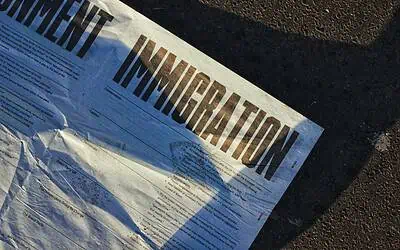According to several press media, following the announcement by U.S. President Joe Biden on January 5th, that Cuban, Nicaraguan and Haitian citizens who reach U.S. borders would be deported to their respective countries or to the countries through which they entered, in his statement the President made clear that border entry was not an option. Opapeleo explains, consequently, some of the areas of the Parole process for Cubans.
What is a Parole Process?
It should be noted that the parole is a kind of conditional freedom situation granted by the U.S. Secretary of Homeland Security at his discretion to those people who enter the U.S. in an unauthorized manner. This grants the beneficiary an “applicant for admission” condition that will allow him/her to apply for and/or obtain a work permit. This remains in force as long as the parole is valid or until the person manages to change or readjust his or her immigration status.
Some of the Reasons for Implementing the New Parole Process
This new feature has an immediate effect. Therefore, all Cubans attempting to enter the U.S. irregularly through its borders may be returned, and otherwise admitted while being subject to prompt deportation proceedings.
Regarding Mexico, the Mexican government announced its commitment to accept each month a total of 30,000 nationals from Cuba, Haiti, Nicaragua and Venezuela, who might be deported by the U.S. authorities to Mexico. If the number of migrants arriving at the Mexican border not meeting the requirements of the Directive surpasses that number, then they may be allowed to enter the United States, but with one single purpose: to be deported promptly.
Currently, the U.S. Government enjoys excellent conditions to refuse migrants entry, as Title 42 (implemented by the Trump Administration) remains in force while Mexico is willing to assume the above-mentioned acceptance policy. Similarly, Carlos Fernández de Cossío announced that Cuba was willing to receive Cubans under deportation orders, after the denial to do so since 2020, arguing the closure of airports as a consequence of the pandemic.
As established on Thursday, January 5th, 2023, Cubans crossing to the southern border of the U.S. will be required to comply with the implemented procedure.
Measures Arising From The New Parole Process
This program will be applicable to irregular migrants arriving both by land and by sea. Balseros (rafters) who reached shore and were permitted entry are also affected by this new measure. The purpose of this procedure is focused on reducing irregular migration, and given that the maritime route is one of the most dangerous and one of the increasing routes in the last few years, sea routes will be affected in the same way. The only valid entry route for Cubans was established to be by air, and only exceptionally may Cubans be admitted if entering by land or by non-air or inland ports.
Parole Process Eligibility Requirements and Procedures
To qualify, migrants are required to have a sponsor in the U.S. who is committed to supporting the migrant financially during their parole process. Earlier, the applicants were required to successfully complete a national security and public safety background check performed by the U.S. Department of Homeland Security. Also, applicants will be required to pay for their own tickets from the place where they are located to an inland port in the US.
The sponsor must be a person living in the United States, and is not required to be a Cuban national or permanent resident of the United States. Sponsors who are U.S. citizens, nationals or permanent residents are eligible. However, those with legal immigration status in the United States, including those who are currently in the country on parole or with a deferred deportation order, are eligible for sponsorship. These sponsors must undergo a security investigation and background check to be performed by DHS. They must also be able to prove that they have the financial resources to host, support and care for the migrant during the time of parole.
The following will not be granted parole under the new directive: Cubans who were issued a U.S. deportation order in the previous five years, or those who entered the U.S., Mexico, or Panama without permission after January 9, 2023.
This process cannot be undertaken by those who intend to emigrate, but rather by those who intend to be sponsors of migrants. The migrant’s sponsor should create a profile on the portal https://myaccount.uscis.gov and then fill out the online form I-134A. Afterwards, both the sponsor and the applicant will be subject to an investigation process to determine if they are eligible for approval and to complete the process.
About Us
Opapeleo is your agency for paperwork procedures 100% online or by phone. We are in Washington DC 150 meters away from the Cuban Consulate. We provide services of Extension and Cuban passport renewal, Legalisations, Powers of attorney of all kinds, Authorisation for minors to leave the country, DVT, Cuban visas, top-ups, requests for Cuban certificates, delivery of official documents and all kinds of procedures related to Cuba.


